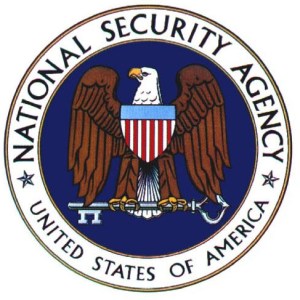
The Wall Street Journal reports (subscription required) that the United States’ National Security Agency—perhaps the largest intelligence-gathering organization on the planet—is launching a program dubbed “Perfect Citizen” to monitor for cyberattacks against both government agencies as well as private companies and organizations deemed to be important to the U.S. national infrastructure. The program would work by installing equipment on various public and private computer networks that would monitor traffic and trigger alarms in the event of suspicious activity or attacks; the Wall Street Journal reports defense contractor Raytheon has won the classified contract in tha $100 million range to supply and deploy the initial phase of surveillance gear.
News of the program is already drawing comparison’s to Orwell’s “Big Brother,” with the government monitoring Internet traffic not only on its own systems but of private corporations as well. It is not clear what sort of traffic monitoring Perfect Citizen might engage in, what sort of data is being collected, or how that data is being stored and used.
Others have expressed surprised the NSA and other agencies have not already put monitoring systems in place to detect common forms of network-based attacks. The Wall Street Journal quotes a U.S. military official likening Perfect Citizen to the types of protection the federal government deploys to protect against physical attacks on infrastructure, and the privacy implications as being of no more concern than traffic cameras.
The program is apparently being funded from the Comprehensive National Cybersecurity Initiative. Companies would not be required to participate in Perfect Citizen, but the government is apparently planning to offer incentives for private firms to do so. According to the story, the initial rollout of Perfect Citizen is aimed at older, legacy systems that were initially designed for site-specific functions—think air traffic control, electrical grid control, power plans, and transit systems—without network access or security, but which have subsequently been connected to the Internet.
News of Perfect Citizen comes just as South Korea reports a repeat of denial of service and malware cyberattacks that hit the country last year; the original attacks were blamed on North Korea, although more recent investigation finds no firm evidence the North Korean government was behind the acts. This year’s attacks were apparently launched from the same systems as last year, and caused no significant problems.
The most high-profile cyberattacks in recent months were a serious of sophisticated attacks against Google and other companies operating in China; in Google’s case, the attacks were intended in part to gain access to accounts of Chinese human rights activists. Google pledged to stop censoring search results in China as a result of the attacks, and moved its search Chinese search operation to Hong Kong; the company is currently waiting to see if it’s Chinese Internet Content Provider license will be renewed so it can continue to do business in the country.
Google has also reportedly been exploring a partnership with the NSA on cybersecurity matters.
Editors' Recommendations
- Does your Mac need antivirus software in 2024? We asked the experts
- Hackers are using this incredibly sneaky trick to hide malware
- Bing Chat’s ads are sending users to dangerous malware sites
- Microsoft accidentally released 38TB of private data in a major leak
- This massive exploit lets hackers breach apps like Chrome, 1Password, and Telegram


